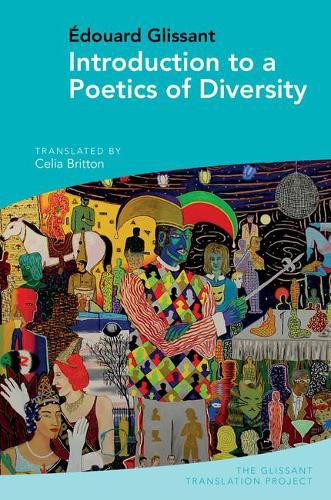Readings Newsletter
Become a Readings Member to make your shopping experience even easier.
Sign in or sign up for free!
You’re not far away from qualifying for FREE standard shipping within Australia
You’ve qualified for FREE standard shipping within Australia
The cart is loading…






This book reproduces the texts of four lectures, followed by discussions, and two interviews with Lise Gauvin published in Introduction a une poetique du divers (1996); and also four further interviews from L'Imaginaire des langues (Lise Gauvin, 2010). It covers a wide range of topics but key recurring themes are creolization, language and langage, culture and identity, ‘monolingualism’, the ‘Chaos-world’ and the role of the writer. Migration and the various different kinds of migrants are also discussed, as is the difference between ‘atavistic’ and ‘composite’ communities, the art of translation, identity as a ‘rhizome’ rather than a single root, the Chaos-World and chaos theory, ‘trace thought’ as opposed to ‘systematic thought’, the relation between ‘place’ and the Whole-World, exoticism, utopias, a new definition of beauty as the realized quantity of differences, the status of literary genres and the possibility that literature as a whole will disappear. Four of the interviews (Chapters 6, 7, 8 and 9) relate to particular works that Glissant has published: Tout-monde, Le monde incree, La Cohee du Lamentin, Une nouvelle region du monde. Many of these themes have been explored in his previous works, but here, because in all the chapters we see Glissant interacting with the questions and views of other people, they are presented in a particularly accessible form.
$9.00 standard shipping within Australia
FREE standard shipping within Australia for orders over $100.00
Express & International shipping calculated at checkout
This book reproduces the texts of four lectures, followed by discussions, and two interviews with Lise Gauvin published in Introduction a une poetique du divers (1996); and also four further interviews from L'Imaginaire des langues (Lise Gauvin, 2010). It covers a wide range of topics but key recurring themes are creolization, language and langage, culture and identity, ‘monolingualism’, the ‘Chaos-world’ and the role of the writer. Migration and the various different kinds of migrants are also discussed, as is the difference between ‘atavistic’ and ‘composite’ communities, the art of translation, identity as a ‘rhizome’ rather than a single root, the Chaos-World and chaos theory, ‘trace thought’ as opposed to ‘systematic thought’, the relation between ‘place’ and the Whole-World, exoticism, utopias, a new definition of beauty as the realized quantity of differences, the status of literary genres and the possibility that literature as a whole will disappear. Four of the interviews (Chapters 6, 7, 8 and 9) relate to particular works that Glissant has published: Tout-monde, Le monde incree, La Cohee du Lamentin, Une nouvelle region du monde. Many of these themes have been explored in his previous works, but here, because in all the chapters we see Glissant interacting with the questions and views of other people, they are presented in a particularly accessible form.